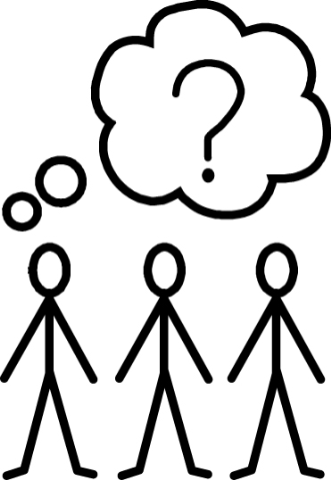
Most people form their opinions based on the conclusions of at least one, and usually two or more significant people. It’s as if someone else holding a viewpoint makes it valid or real, but until you find a person holding that particular viewpoint it cannot be correct. Joe, for example, thinks Mary was unfair in her behavior. He confides to Bill that he thinks Mary was unfair. Bill replies, ‘You’re crazy. You’re being way too hard on Mary. She wasn’t being unfair.’ Joe immediately thinks, ‘I must be wrong.’ Then he talks to Jerry. Jerry says, ‘Of course you’re right. Mary is the most unfair person I’ve ever heard of.’ In the end, Joe splits the difference. Now that he has validation for both points of view, he selects the one he wants in a ‘middle ground’ sort of way — between the extremes of Bill and Jerry, thinking this is ‘reasonable.’ If he had never talked to Jerry, he might never have decided Mary was unfair.
What I find in the world is not just a lack of critical thinking, but an almost total lack in independent judgment. What makes independent judgment possible? A sense that “reality is what it is, and I need to find out what’s true. I can find this out without asking other people.” It’s not that asking other people is wrong. There’s a wealth of knowledge to be gained from other people. But it’s not true just because people say it. Something is true because it makes logical sense, because you can objectively validate it for yourself. This is the crucial link between knowledge and self-esteem. Most people have more knowledge and intelligence than they do confidence in their ability to utilize these assets.
